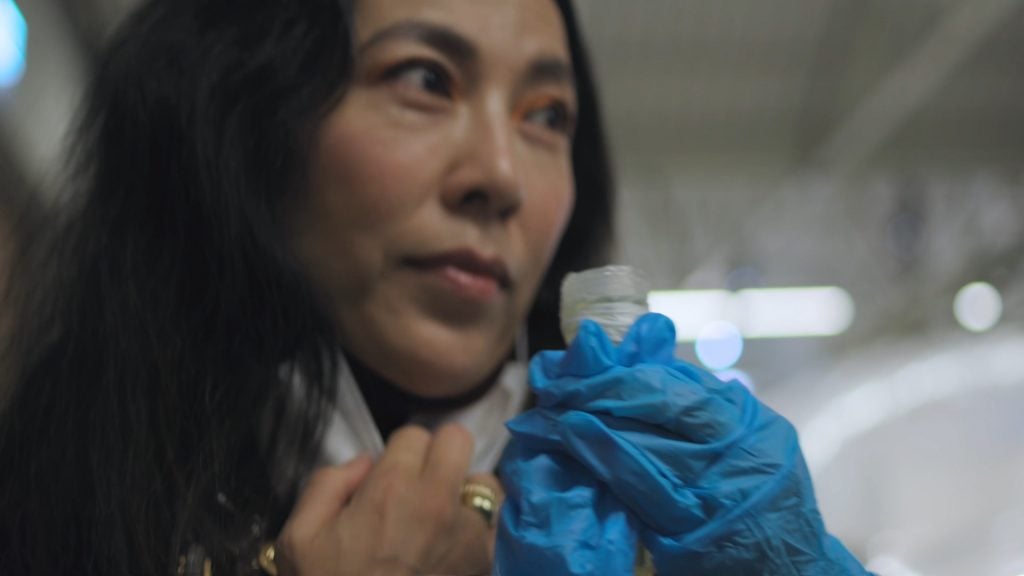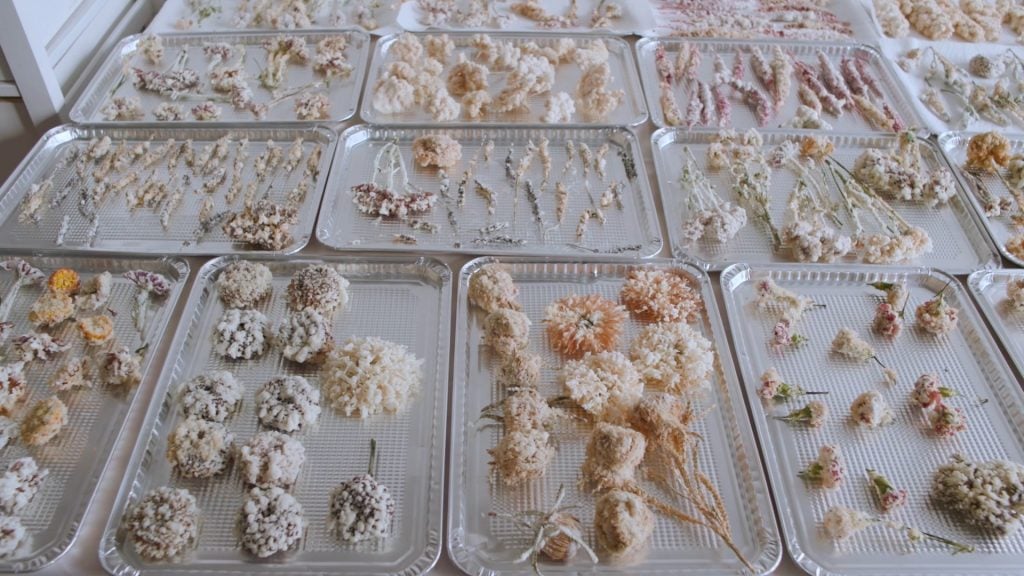People
‘I Grew Up in a Very Pungent Home’: Watch Artist Anicka Yi Deep Fry Flowers as Part of Her Multi-Sensory, Biopolitical Practice
As part of a collaboration with Art21, hear news-making artists describe their inspirations in their own words.

As part of a collaboration with Art21, hear news-making artists describe their inspirations in their own words.

Artnet News

Visitors to Anicka Yi’s installations often find themselves relying on senses they aren’t accustomed to using in the more visually focused art world: scent, touch or taste. Her works draw on the sometimes more ephemeral but deeply evocative elements that spark memories and associations, to examine “the biopolitics of our senses,” according to the artist.
“I grew up in a very pungent home, and was very keenly and acutely aware of how smell does start to create these forms of identity around these invisible scent molecules,” Yi explained in an exclusive interview filmed as part of Art21’s series Bodies of Knowledge. “In the Western world, we really tend to reject very pungent odors as a sign of weakness, as a sign of being more animal. We have left those odors behind us to a perfectly sanitized world where we control what we can smell and what we can’t—and that is an impossible approach to existence.”
Yi sees this impulse to sanitize the world as rooted in a very human fear of being obliterated from existence. “We go against nature to try to preserve and stabilize and control something that resists all of that.”
Around 2010, Yi started deep-frying flowers and plants as a way of exploring this fear of destruction. She would dip the plants in a thick batter that masked both the original form and scent of the flowers, and then drop them in 300-degree boiling oil, to transform them into an entirely new object. “The visual aspects of it was definitely something that I was aiming for,” Yi said, “but the odor of, like, French fries… that was very much compelling me to, you know, fry up a batch of these.”

Production still from the “Art in the Twenty-First Century” Season 11 episode, “Bodies of Knowledge,” 2023. © Art21, Inc. 2023.
A similar fear often follows society’s growing reliance on technology and machines, from factory automation to artificial intelligence. “We have a very limited imagination when it comes to machines. We have a lot of anxiety that they will replace us,” Yi said. “But what if we could relate to them in a more optimistic way?” This question led the artist to create her jellyfish-inspired “aerobes” series of sculptures, which took over Tate Modern’s Turbine Hall in 2021–22.
“The machines respond and detect one another through high-frequency radio waves. And they’re able to detect heat signatures of visitors,” Yi said of the works. “Some aerobes are curious about the visitors, while some are more shy. It was really important for me that they were unpredictable, and that they had space and time for their own evolution. You know that they’re mechanical, and yet they feel palpably alive.”
Watch the video, which originally appeared as part of Art21’s series Bodies of Knowledge, below.
This is an installment of “Art on Video,” a collaboration between Artnet News and Art21 that brings you clips of news-making artists. A new season of the nonprofit Art21’s flagship series Art in the Twenty-First Century is available now on PBS. Catch all episodes of other series, like New York Close Up and Extended Play, and learn about the organization’s educational programs at Art21.org.